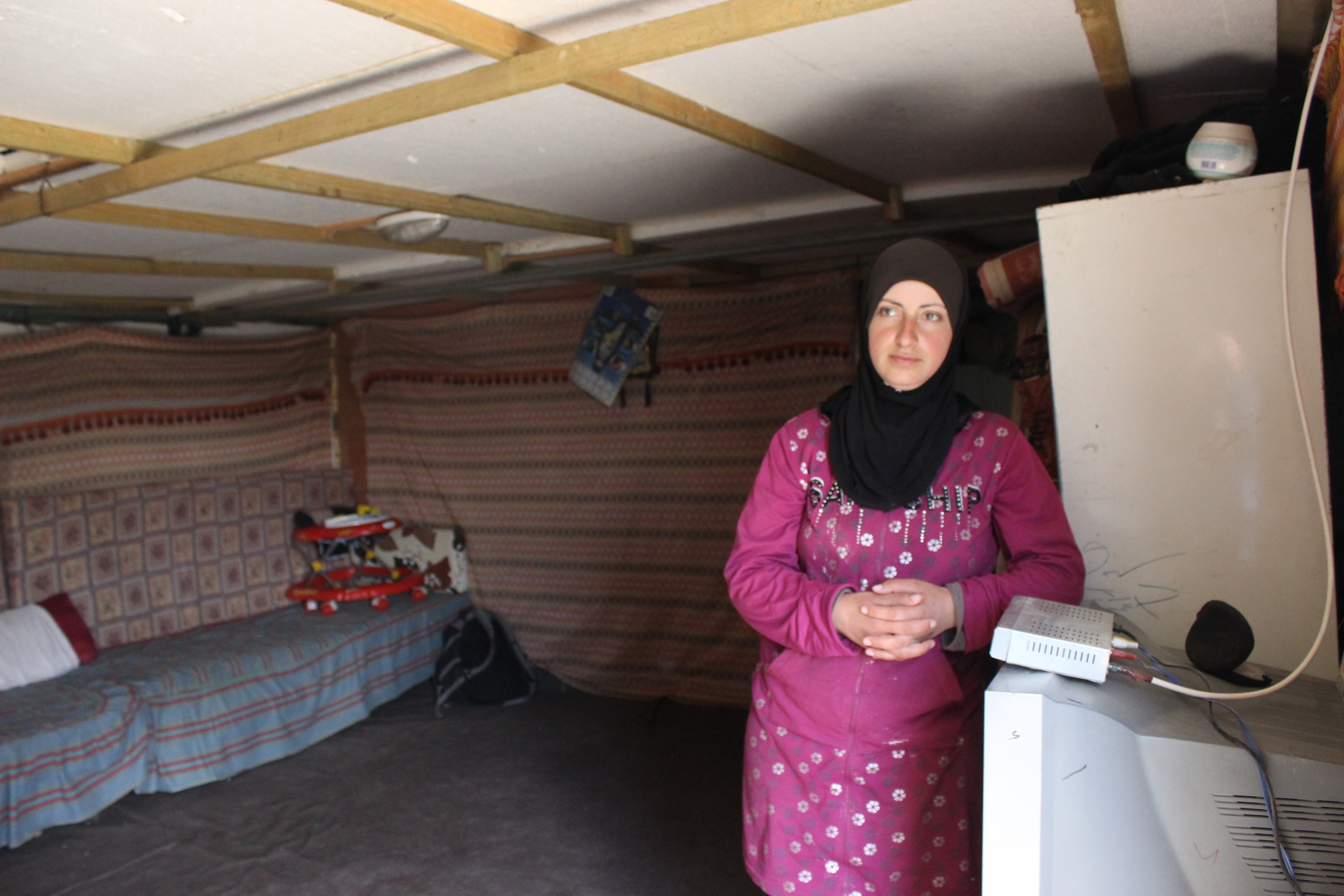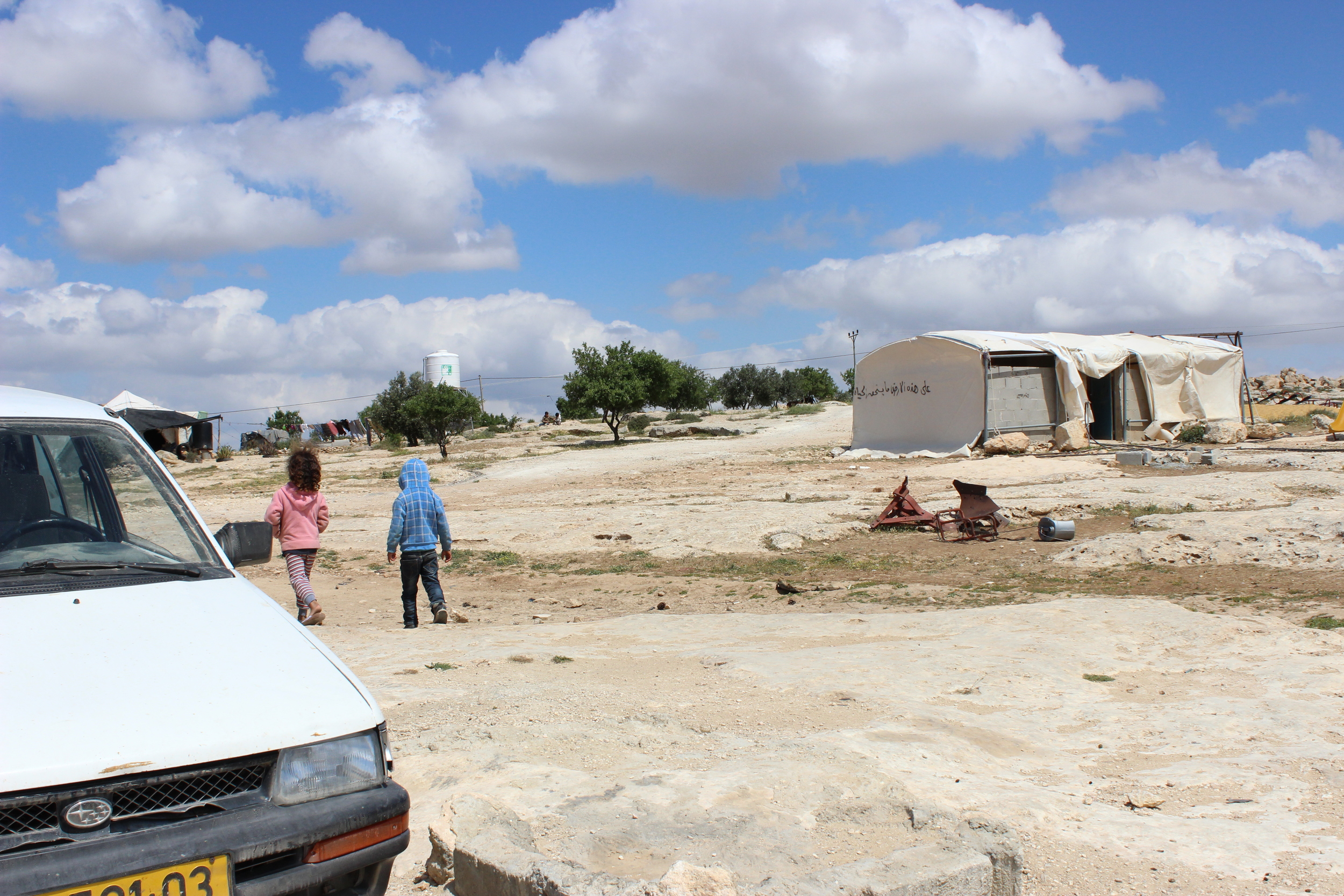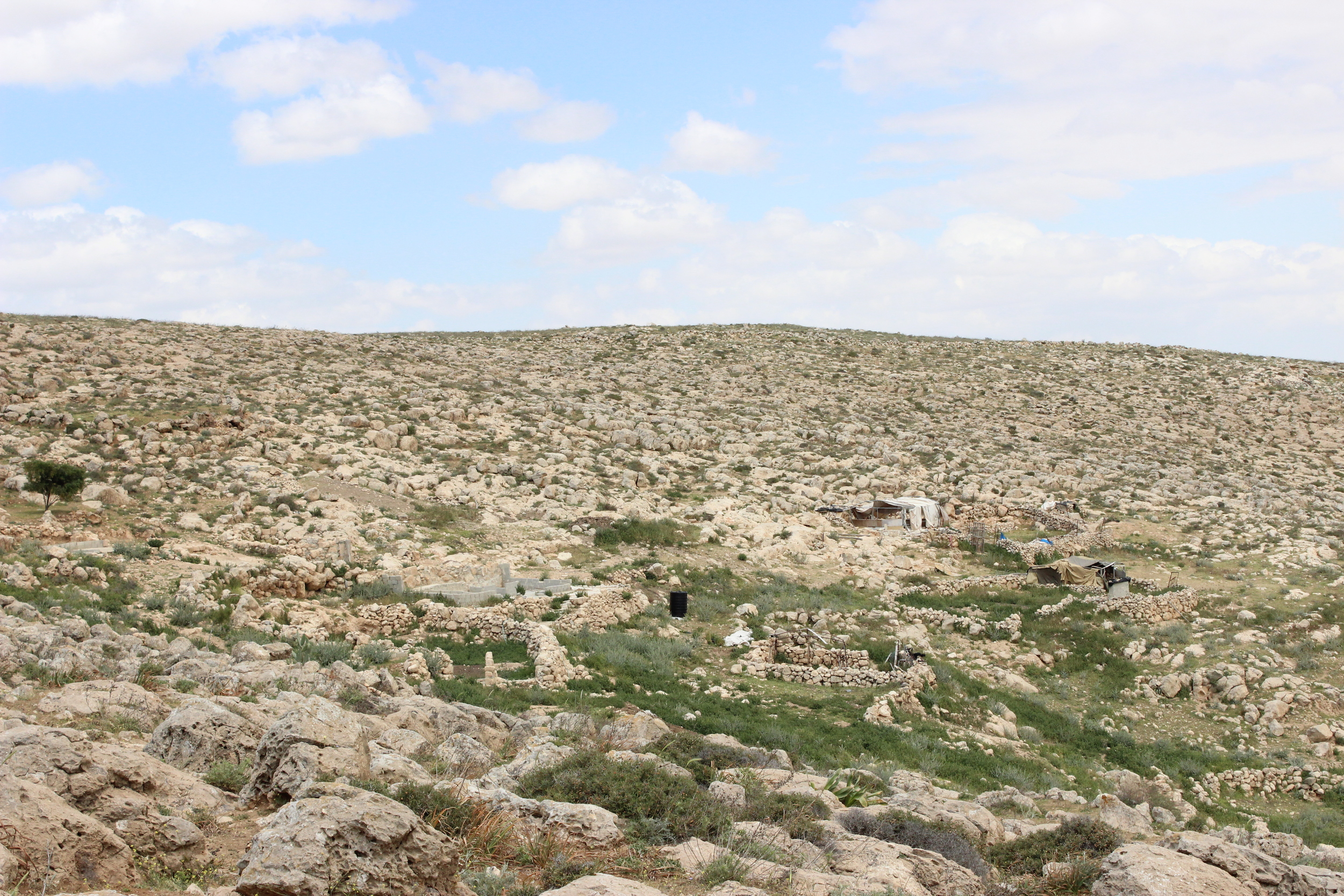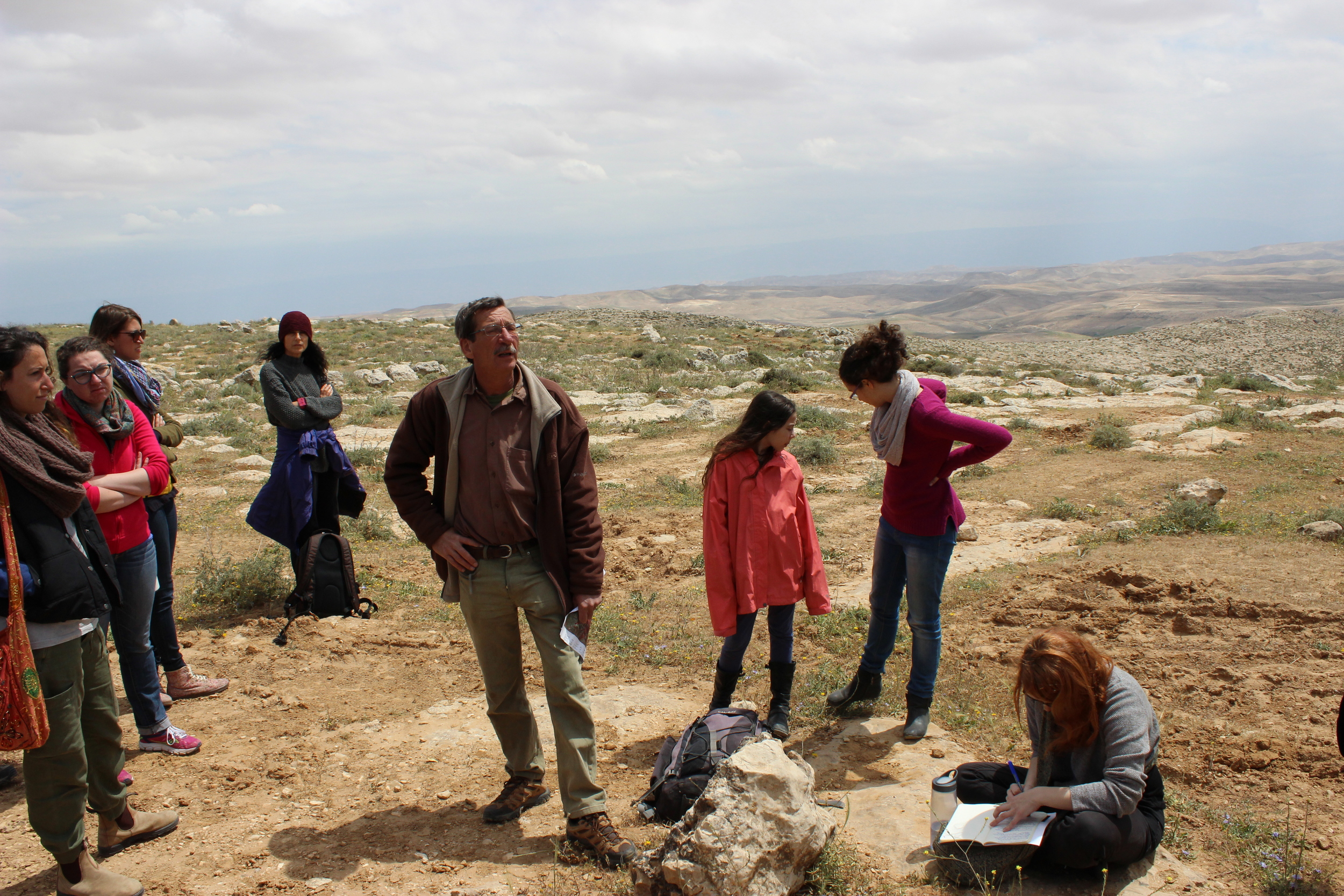April 11, 2015
Yesterday I traveled to the South Hebron Hills with All That's Left and Taayush for a day of education about the situation facing Palestinians in this region. Taayush is an organization of "Israelis & Palestinians striving together to end the Israeli occupation and to achieve full civil equality through daily non-violent direct-action."
For all that we saw, see my tweets here.
The area of the South Hebron Hills is in Zone C of the Palestinian territories, and while approximately 4,000 Palestinians live there now, there is an implicit and explicit effort being made to push the remaining people off their lands to other villages or towns in order to annex the remaining land.
Amiel, our guide, was an Israeli who has worked and volunteered with Taayush for over 12 years. He has dedicated every weekend to coming to the South Hebron Hills. One friend of mine told me that he is a permanent fixture at every protest or event within Jerusalem, Hebron and the surrounding areas. His family is a dynasty amongst lefty activists. Yet he is a modest man, traipsing quietly through the grass, with his two young girls following behind him, leading the way to the house of yet another friend.
Amiel showed us the area on maps and explained how in the hills and within the valleys, there are 24 unrecognized Palestinian villages which each face different threats to their continued existence.These villages have been expelled and demolished over and over again since the second Intifada. Some have been relocated many times due to reasons such as the establishment of a military firing zone through the middle of the valley, or due to the declaration of the land as an archaeological site.
The map is now a crisscrossing puzzle of Zones A and B and C zigzagging and undermining each other. He joked with us that he understands the borders better than the soldiers and that they even follow his advice.
We spoke with a family who lives in Susiya. Susiya is currently made up of only a few tents on top of a hill, with no access to water, a crumbling road, and infrequent electricity. There is a standing demolition order for the village, and the Supreme Court of Israel is currently delaying passing judgement on whether or not the demolition order is legal. One man described to us how his grandfather was expelled from his village by Israel in 1948 and carried his father to the new village. Then in 1986 when the villagers were expelled again, his own father carried him from the second side of the village to where Susiya is located today. He then told us how he does not wish to carry his own children to a new place if they are expelled again. His story was left lingering in the air, and yet the prophetic parallelism seems inevitable.
We visited with Um Takir who lives down the hill from Susiya. Her and her husband are the last remaining family living on the side of the hill next to the road leading down into the firing zone. She recounted how her husband was shot one year in the eye, and had to be fed through feeding tube through his nose for a year afterwards. She told us how the settlers come in the night to break her solar panels and cut the hose to her water tank. Their last neighbor just moved his whole family to Yatta, a neighboring recognized city, after he was violently attacked by settlers and after returning from the hospital, retaliated against them. His response led to the hospitalization of 3 settlers. He is now waiting for the hearing to his court case, and Um Takir is left alone in the valley. Soldiers are stationed nearby, but the positioning of her house on the hillside hides it almost completely from outside eyes.
It was incredibly dismal to look at the crumbling stone walls of the last remaining house of a village. She and her husband stand as the final barrier to the annexation of a huge section of the valley and the end of an historical identity tied to that land. Um Takir told us that she will not leave this house unless she is martyred.
I was struck by the labyrinthine and seemingly insurmountable details of the situation. We listened and toured and walked for over 6 hours, and yet I walked away being more confused than when I arrived. It is all a jumble of court-cases, military law overriding civilian law, water pipes, permits, violence, demolitions, donations, systemic oppression and paradoxical objectives; and then it is all bound together by a few fierce individuals with a relentless attachment to their land, a desire to live in dignity, and a refusal to be forcefully pushed out. And in the backdrop, 18 year old soldiers are standing around bored with huge guns.
There was one surreal moment that stuck with me: as we stood by the side of the road, 5 soldiers came from the nearby settlement and began to walk across a field of flowers. They were wearing all their gear, carrying huge rifles and the birds were singing in the background as if this was the most peaceful nature walk to ever take place. The sky was so blue and spring was so bright. I caught eyes with a friend of mine and we both just shook our heads at the dissonance of the moment.
For a more in depth account of what has happened in the South Hebron Hills over the years and attempts at resistance, court cases, and violence, see here and here. Breaking the Silence also holds tours in the South Hebron Hills. And stay tuned, All That's Left will be organizing an action of partnership this summer with Jews from the Diaspora aimed to alleviate some of the challenges these Palestinians face.








